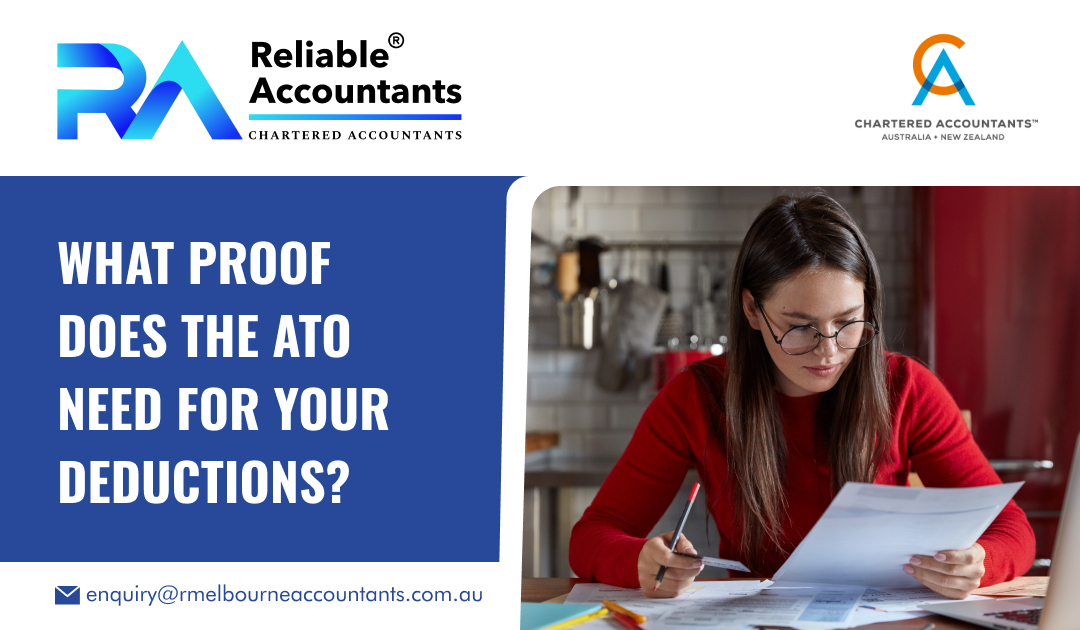When you submit a tax return, you may be eligible to claim tax deductions for expenses incurred while working in a business if they are related to making assessable income. There are different types of business expenses you may be able to claim deductions for including day-to-day operating expenses, purchases of items or services for your business, and certain capital expenses.
What expenses can you claim?
Motor vehicle expenses
As a business owner, you may be able to claim a tax deduction for expenses for motor vehicles used in a business. Cars are defined as motor vehicles designed to carry both a load of less than one tonne and fewer than 9 passengers. Other vehicles include motorcycles that are used to carry either one tonne or more, or 9 passengers or more.
Home-based business expenses
If you are running some or all of your business from home, you may be eligible to claim tax deductions for the business portion of expenses. These may include occupancy expenses, running expenses, and the expense of motor vehicle trips between your home and other places if the trip is for a business. Your tax return accountant will maintain every record of your expense to claim as a tax deduction.
Business travel expenses
Your business may be eligible to claim a deduction for travel expenses associated with your business. Expenses you can claim include airfares, tram, bus, taxi, car hire fees, and accommodation.
Digital product expenses
As a business owner, you may be liable to claim deductions for digital product expenses used in your business. You can claim capital and operating expenses.
Deductions for salaries, super, and wages
As a business owner, you may be liable to claim a tax deduction for the wages and salaries you pay to employees and super contributions made on time to a complying super fund or retirement savings account for your staff and for certain contractors.
Deductions for maintenance, repairs, and replacement expenses
You are liable to claim expenses from allowable maintenance, repairs, or replacements, including conditioning gutters, painting, maintaining plumbing, repairing electrical appliances, mending leaks, and repairing machinery.
Deductions for operating expenses
Operating expenses are the expenses you may have incurred or have to incur, in the everyday running of your business.
Deductions for depreciating assets and capital expenses
If a depreciating asset is used to make assessable income, you may be able to claim deductions for its decline in value over time. You can follow the general depreciating rules to calculate the tax deduction for most assets. You can also ask a tax accountant to get it done for you. You can also find a tax accountant near your area by searching ‘tax accountant near me’. If you are a small business entity, you can apply the simplified depreciating rules.
What do records you need to keep?
Records are referred to as evidence of your expenses and income. You have to maintain these records to support the claim that you are likely to make in your tax return. You must have a receipt from the supplier for the most expenses.
For wages, government payments, allowances, or pensions, your records must have:
- Your income statement if your employer reports to the ATO through single touch payroll.
- Your PAYG payment summary – individual non-business.
- A signed letter from your payer.
- Your PAYG payment summary – superannuation income stream.
Deductible expenses: If you apply for a deduction for a deductible expense, you need to maintain records. For most expenses, you must have a receipt as proof of your expenses.
Work-related expenses: If you claim a tax deduction for expenses related to your work, you must have:
- Written evidence, which includes the business name or name of the supplier, the amount of cost, the nature of services or goods you purchased, the date when you bought the goods, and the date when the written evidence was prepared.
Investment and assets: If you obtain a capital asset, you may make a capital loss or capital gain if you later dispose of the asset. To maintain all the records, you can get help from a professional bookkeeper in Melbourne.
Conclusion
The blog highlights important records you need to maintain when claiming potential tax deductions. For more information on records and types of tax deductions you can claim, you can get in touch with Reliable Melbourne Accountants.

